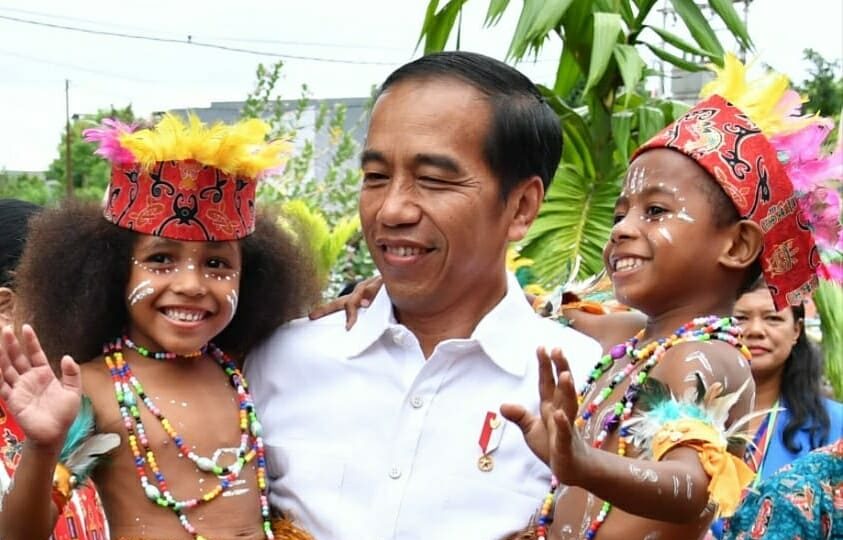Activists in Indonesia have been pushing the government for years to close a religion-based legal loophole that has allowed underage kids to be married, leading to what some officials have described as “emergency” levels of child marriage in the country. A recent viral news story involving a 15-year-old boy and a 14-year-old girl who were given permission by their local religious court to be wed highlighted the severity of the issue, leading the national government to intervene to stop their marriage.
The case also seems to have provided the impetus for President Joko Widodo to finally deliver a legal solution to the country’s child marriage crisis, with Minister for Women’s Empowerment and Child Protection (PPPA) Yohana Yembise saying that he has approved the issuance of a Perppu (Government Regulation in Lieu of Law) on the prevention of child marriage.
“It has been discussed and the president has agreed,” Yohana said at the Bogor Palace Complex on Saturday as quoted by Detik, saying Jokowi had reached the decision after discussing the matter with numerous activists and NGOs on Friday.
The current legal age of marriage in Indonesia is 19 years old for men and 16 years old for women. However, the country’s 1974 Law on Marriage also includes a major loophole to this requirement which allows marriages to still be considered legal if they are done “in accordance” with religious belief. As such, underage marriages that have been sanctified by religious courts or officials must still be officially recognized by the government.
Although the exact language of the Perppu has not been finalized, it is expected to essentially replace the 1974 Law on Marriage and increase the legal age of marriage to 20 years old for women.
While women’s rights activists who have campaigned long and hard against child marriage have hailed the government’s move as a momentous step forward, it is not sitting well with some religious authorities, particularly the Indonesian Ulema Council (MUI), the country’s highest Islamic clerical body.
MUI officials have argued that the 1974 Marriage Law is based in the first tenet of Pancasila (Indonesia’s state ideology) which upholds the supremacy of religion and that it was still very important to followers of Islam.
“The minister of PPPA should consider the religious aspect of the plan, because the legitimacy of a marriage must also be based on religious values,” MUI Deputy Chairman Zainut Tauhid Sa’adi said on Sunday as quoted by Jawa Pos.
Zainut said that MUI could not accept the Perppu as discussed and that the government should consult with religious authorities (particularly MUI officials) before issuing it.
PPPA Minister Yohanna said that the government would discuss the Perppu further this week with various groups, including religious organizations. But she noted that there was already a huge body of scientific evidence showing that child marriage has numerous negative outcomes, especially for young women, and was holding back the country’s overall development.
In April of last year, Indonesian female Muslim clerics issued an unprecedented fatwa (edict) declaring child marriage to be harmful as it is a large contributor to Indonesia’s high maternal mortality rate. Furthermore, they cited studies that many Indonesian child brides could not continue their studies once wed and half their marriages ended in divorce in addition to child marriage increasing the risks of exploitation, sexual violence, and domestic abuse.
Even so, stories about children (some as young as 14) getting married continued to take place and go viral on social media since then. Women’s Empowerment and Child Protection Deputy Minister Lenny Rosalin said that child marriage in Indonesia is at “emergency levels” as, based on UNICEF data, Indonesia ranks seventh in the world and the second highest in Southeast Asia in terms of the overall percentage of marriages in which at least one of the spouses is under 18 years old. According to government census data, 17% of all Indonesian girls married in 2016 were under 18.




